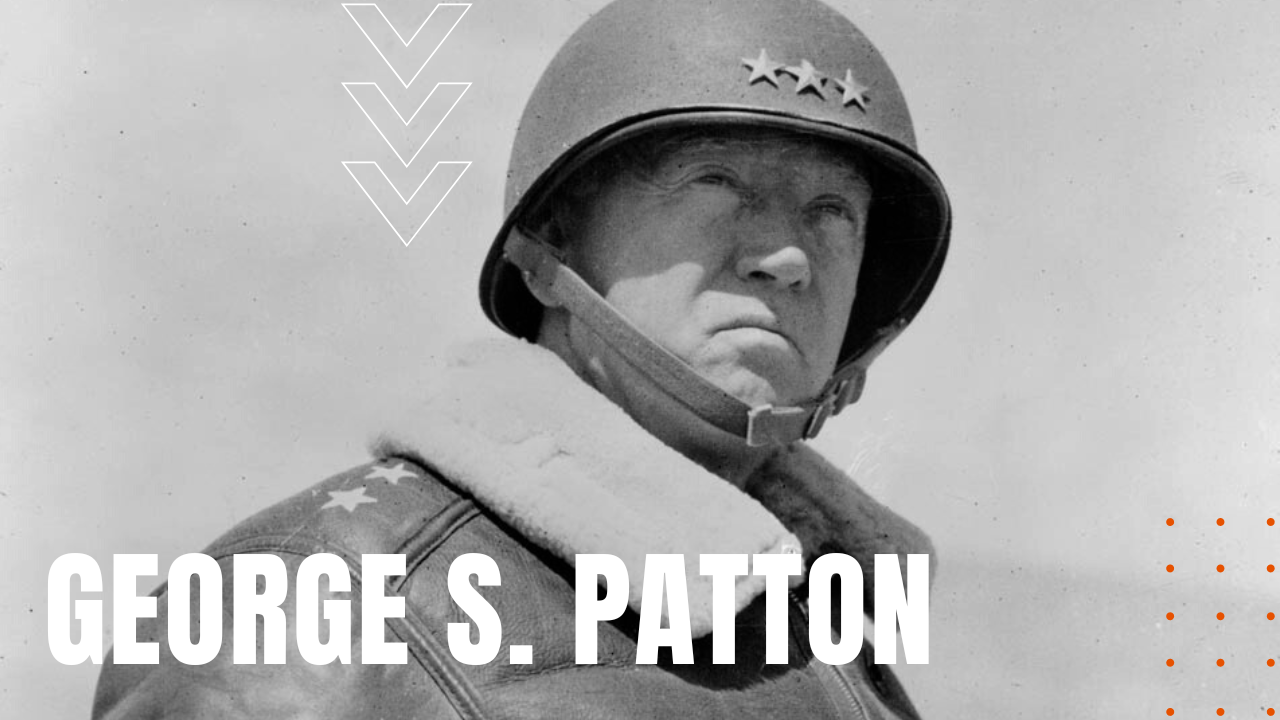George S. Patton

Born into a family of distinguished military heroes, George S. Patton became convinced at a young age that his fate lay in perpetuating the family legacy of valorous achievements. Raised in a loving home, in later years, Patton remembered his father reading The Iliad and the Odyssey to him at seven years of age. Dyslexic from birth, Patton was a five-year, undistinguished student at West Point, although his athleticism saw him compete at the 1912 Olympic Games in Stockholm.
First Combat
Patton saw his first combat in the Mexican War of 1916 before leading a tank brigade in WW1 in two major actions, although his ultimate preeminence came during WW2, where his exceptional leadership and tactical skills played a crucial role in the Allie’s victory in both the North African and European theaters, where he once proclaimed that “the object of war is not to die for your country, but to make the other bastard die for his.” Of his many achievements on the field of battle, Patton led the U.S. Seventh Army to key victories over the German Afrika Corps, before applying his aggressive style during the Allied invasion of Sicily and Southern Italy, where his heavy reliance on tank warfare would shape military strategy well into the future.
Strategic Genius
His leadership style and strategic brilliance reached its zenith during the German’s last-ditch counteroffensive at the 1944 Battle of the Bulge, where his rapid response and audacious strategies relieved pressure on besieged Allied soldiers at the town of Bastogne. On the down side, however, he once slapped a soldier suffering from combat fatigue, while on March 25th, 1945, he sent 307 men 25 miles behind enemy lines to free his son-in law from an officer Prisoner of War camp near Hammelburg Germany, costing the lives of nearly 300 Allied soldiers when Wehrmacht forces encircled the task force—an egregious failure soon overlooked by the press, due to the passing of FDR on April 12th, 1945.
Dual Personalities
Considered by most historians to be a Jekyll and Hyde personality, according to historian Stephen J. Zaloga, “Patton’s main intellectual weakness was that he was overwhelmingly self-centered, who often viewed the world as an extension of himself. One minute he could be a fire breathing autocrat, lashing out as his subordinates, the next minute a maudlin sentimentalist, crying at the sight of wounded soldiers in a field hospital.” He died tragically in a car crash on December 21st, 1945, at 60 years of age, yet his legacy lives on for his strategic brilliance, relentless pursuit of victory, and his lasting influence on armored mechanized warfare.
